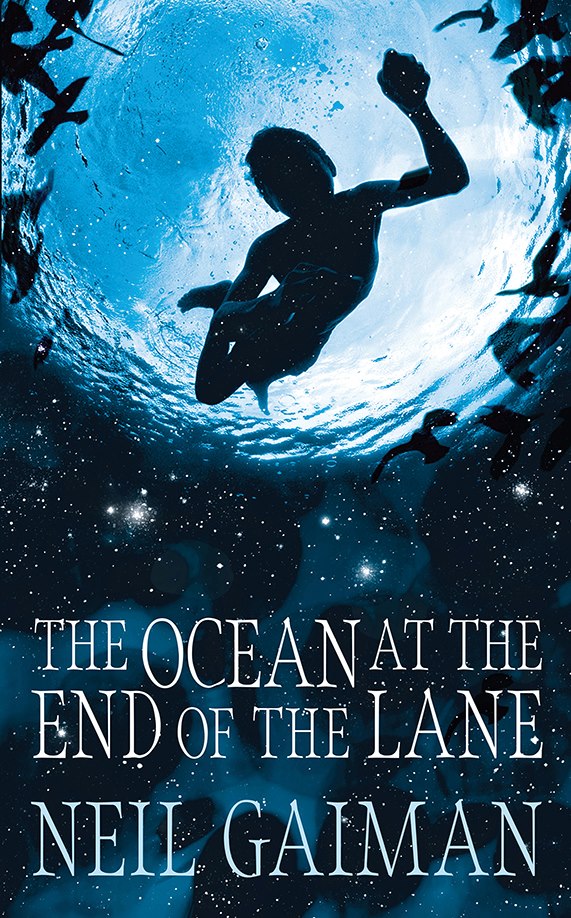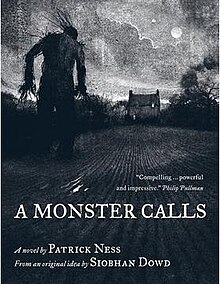'A Monster Calls' concerns a 13 year old boy, Conor, who one day wakes from a nightmare to be confronted by a giant, talking yew tree at his window. The yew tree 'monster' demands Conor's attention and will, over three stories, teach Conor that life is not black and white. And this is important for Conor, as his mother is terminally ill with cancer. As her condition worsens, Conor has to learn to accept the inevitable. Only with the help of the monster, who appears every 12:07, can Conor understand the complexities of his feelings and find a way to let go.
Ness writes simply but beautifully. The illustrations by Jim Kay are enchanting but gritty; bleeding at the edges of the page as symbol of the anger and pain felt by Conor. They are stark but beautiful images. Although the story is about the inevitability of death, our own mortality, the book is full of life and hope. That even though life is not black and white, that fairy tale endings are not always possible, there is still hope to be found in the grey areas. This is what the monster teaches through his stories to Conor: life is a wild and complex creature, but this is okay.
 I highly recommend 'A Monster Calls'. It made me choke up and not many stories do this. A very adult message for children- go read it!
I highly recommend 'A Monster Calls'. It made me choke up and not many stories do this. A very adult message for children- go read it!
Comparing 'The Ocean at the End of the Lane' may be contrived, although there are parallels. Both stories deal with the pains of childhood in a whimsical, adult way. In Gaiman's book it is the isolation of the young boy, dealing with the aftermath of a suicide and a horrible babysitter, that is the emotional thread. There is a similar blurring of what is real and what is fantasy, but this again seems a way of understanding the complexities of reality. The imagery is fantastic: the babysitter comes through a wormhole from the boy's foot; the ocean is just a small pool but inside lurks the answers to the universe; the sky crackles and speaks like a God. Just as Conor learns to deal with his pain and anger through his relationship with a talking tree, the protagonist in 'Ocean' also learns to overcome such emotions through supernatural encounters.Both are excellent, highly imaginative with a sense of the macabre and the fantastic.

No comments:
Post a Comment